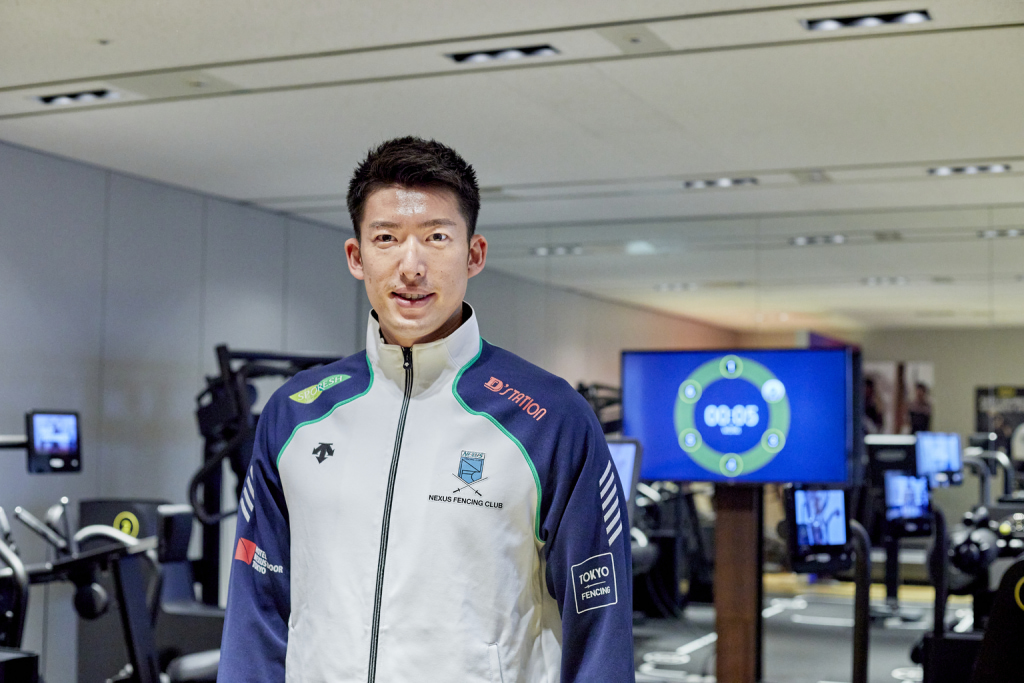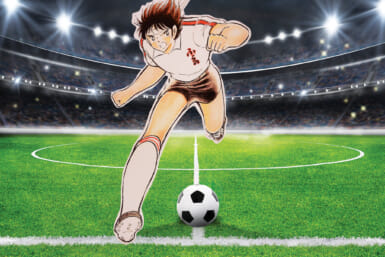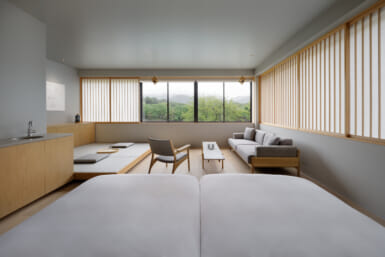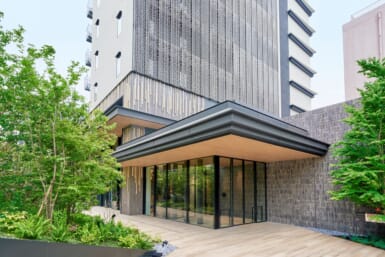Majesty Onarimon Club is supervised by fencer Kazuyasu Minobe who, this summer, won a gold medal at the Tokyo Olympics as part of Japan’s épée team. The 34-year-old Fukui Prefecture-native competed in volleyball and karate as a youngster but ended up switching to fencing at high school following advice from his father. After graduating college, he wanted to continue with the sport and Nexus (stylized as NEXUS) helped him do that.
“The CEO went to the same college as me and was a former national fencing champion,” says Minobe. “He and the company have been backing me ever since. It’s great as he understands what it’s like to live the life of a fencer. Additionally, he also can tell when I’m slacking off, so it motivates me to continue working hard. We’ve never sparred together, though. He would destroy me (laughs).”
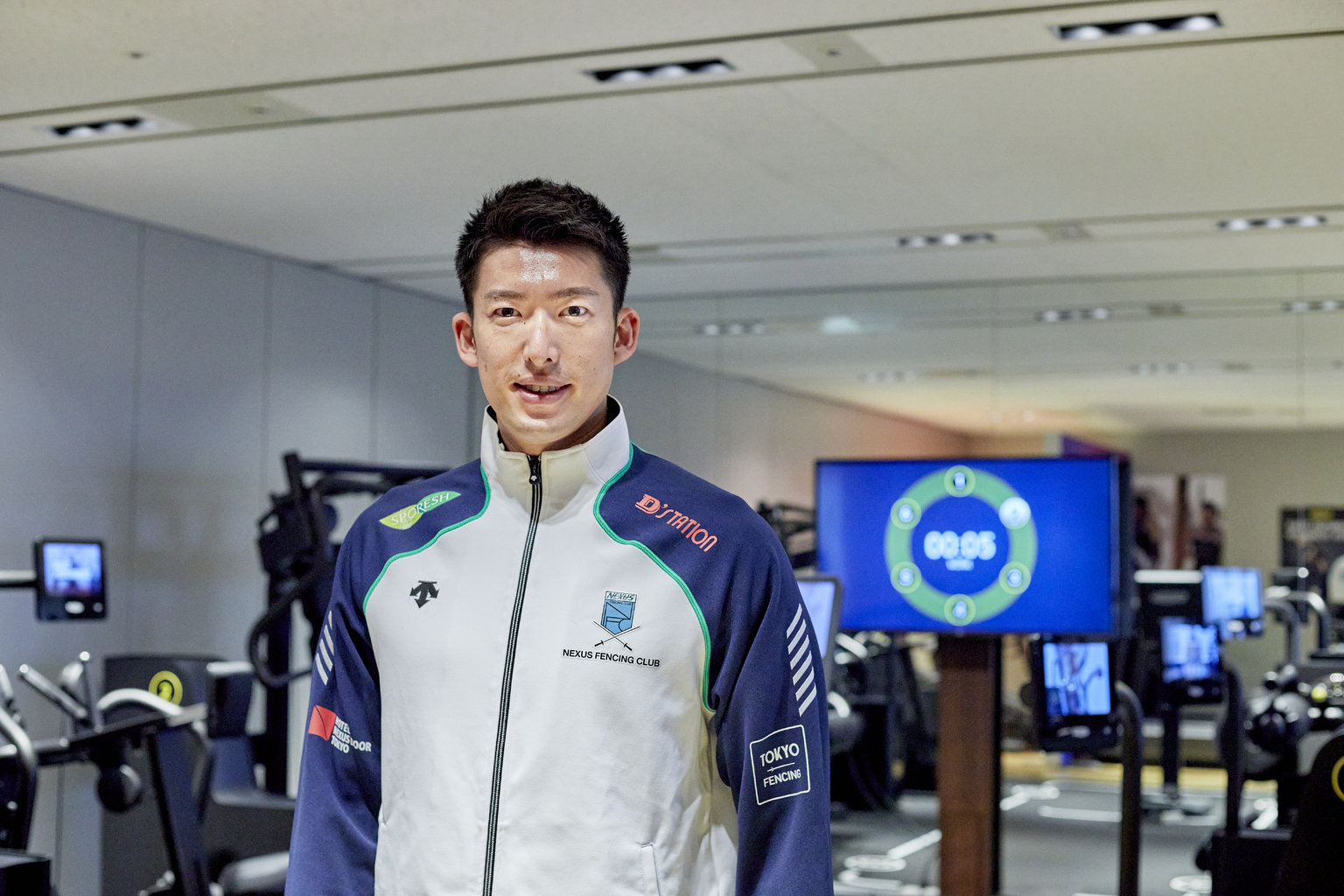
According to Minobe it was difficult to continue with a career in fencing after school unless you joined the police force. That was previously the only way you could get sponsorship. Nexus changed that. It became the first company to properly support fencing. Other corporations have recently followed suit, but for a long time it was only Nexus.
Since joining the multi-layered entertainment organization, Minobe’s career has gone from strength to strength. In the Estonian capital of Tallinn in 2015, he became the first Japanese man to win an épée World Cup. Following that success, he was feeling confident going into his first Olympics in Rio in 2016. Despite a solid sixth place finish, he wasn’t satisfied with his performance.
“I wanted to qualify for the Olympics as part of the Japanese men’s épée team, but as a collective we weren’t quite good enough at that time, so I went for the individual competition,” recalls Minobe. “I’d just won the fencing World Cup, so it was natural for me to try to go for the gold at the Games next. It didn’t end up going well, though.”
After Rio, Minobe continued to improve. He won two more World Cups in 2018 and followed them up with a brace of Grand Prix victories in 2019. That same year, he climbed to number one in the world rankings. With the Tokyo 2020 Games on the horizon, things were looking good for the left-handed épée fencer. Then the Covid-19 pandemic struck.
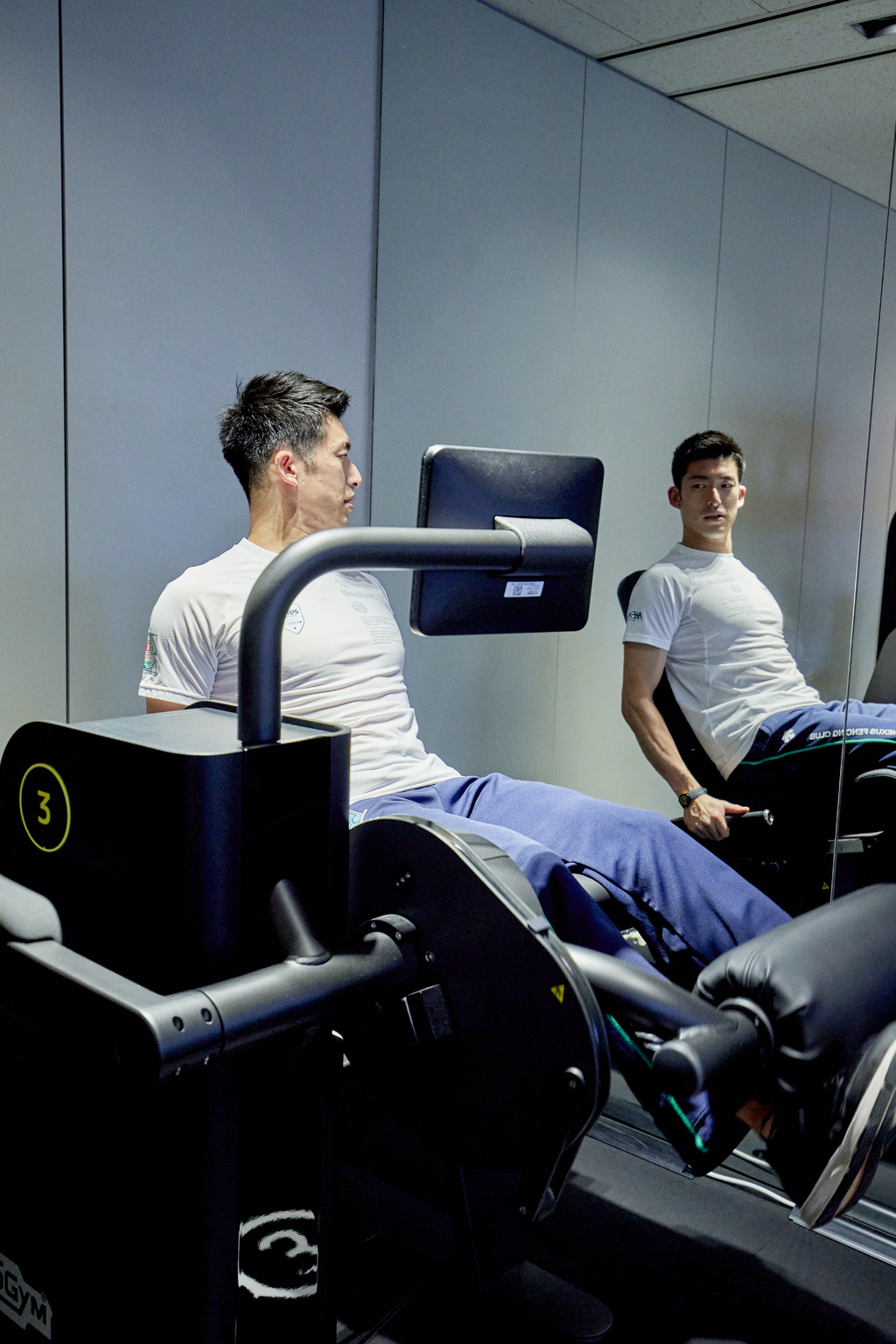
“It was tough,” says Minobe. “If you stop training your strength falls quickly. Because of restrictions at gyms, most fencers had a hard time training. Fortunately, Nexus gave me equipment to use at home which helped. However, even with that I couldn’t spar with people as much which made it very difficult to keep peak shape.”
There was also the psychological burden of not knowing whether the Games would go ahead. Eventually, it was given the green light and Minobe was seen as one of Japan’s best medal prospects in fencing. Disappointingly, he was knocked out in the round of 16.
Fortunately, he still had the team épée competition, though little was expected of Japan. Captain Minobe was replaced by a substitute during the first round match against the USA, but he continued to support his teammates from the bench with passionate support and fought in unison to help Japan top the podium in what was one of the biggest upsets of the Olympics. It was the first time in history that Japan had won a gold medal in fencing.
“The team competition is a four-player event, with three players and one reserve player. However, if a player is replaced by a reserve player, the player cannot be replaced again until the end of the final game,” explains Minobe. “However, if all four don’t do their best, we won’t succeed. When I was on the bench, I dressed in our uniform and knew I had to cheer harder than any of the other members so they’d win. When that actually happened, it felt like I was in a dream.”
Sponsored Post
This article was published in Tokyo Weekender’s Nov-Dec 2021 magazine. Flip through the issue by clicking on the image below.

